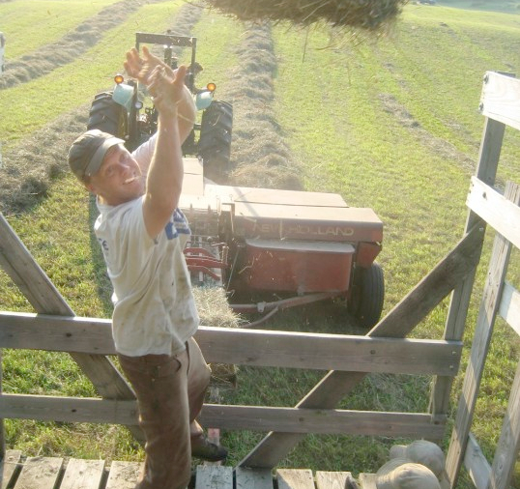Real Farmer or Faking It
I first heard about Ben Hewitt when he authored the book, “The Town That Food Saved”; a story about how a struggling Vermont town became a beacon in the locavore movement and brought national attention to resolving the food crisis. Ben posted this article on his blog recently and I wanted to share it. I thought it was a great example of how small-scale farmers are perceived by larger growers. I especially liked the questions he raised about the value of being able to feed one’s self and one’s family. Enjoy!
Faking it
By Ben Hewitt
Not so long ago, I was at the home of a real farmer. I know he was a real farmer, because he told me so. The implication, I believe (though I can’t be sure) was that I am not a real farmer, because I do not earn all or even the majority of my living from a farming enterprise. For what it’s worth, this is not the first person I’ve heard articulate such a belief. Or even the third.
Leaving aside the question of why it even matters who is and who is not a real farmer, and why anyone would feel compelled to claim such a title for him or herself, I couldn’t help but ponder what factors must be present to make a farmer real.
I’m pretty sure our neighbor’s definition is income-based. That is, if you make your living “farming,” then you are a “real farmer.” Fair enough, I suppose. But I know this person’s enterprise pretty well; I know that his family purchases the vast majority of their food at a retail outlet. I know that they don’t keep a garden, or process any of the milk they produce into butter or cheese or yogurt. They don’t raise their own meat. What they do, basically, is specialize in the production of a single food (milk), which they primarily sell in bulk. This arrangement provides them with the money necessary to purchase the essentials they do not produce for themselves. This is, in his mind at least, real farming.
Last year I was at a book talk, and someone asked me how much of my income is derived from our farm. “Oh, not much,” I answered, because it’s not. Most years, it’s not much more than 15%.
“But did you include the food you grow for your family in that figure?” He asked.
Well, no, actually. I hadn’t.
Which is where this conversation gets interesting, because my family raises upwards of 80% of the food we consume. I’m not really sure how to put a dollar value on the food we raise for ourselves, because I know that in many cases, we could purchase our nourishment for much less than it costs to produce it, particularly if one is inclined to believe the lie that time is money and therefore, the time spent in pursuit of our food production could be more profitably applied elsewhere. In other cases, we couldn’t buy the food we produce for any price, because it’s simply not available on the open market.
In any case, I am struck by the irony that we seem to have arrived at a definition of “real farmer” that is rooted in money, rather than food. Frankly, it’s fine with me: I have no need nor desire to lay claim to the term “real farmer.” I am happy to cede it to those whose agricultural pursuits are based in the exchange of product for money.
What does that make me? Hell, I don’t know. And I’m not going to spend much time trying to figure it out: I’m too busy growing food.
To read more about Ben and his family farm check out his blog

Recent comments
Aenean nonummy hendrerit mauris. Phasellus porta.